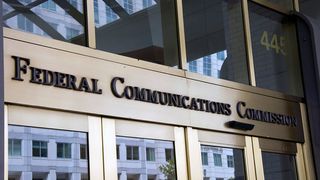Pai: FCC Does Not Conclude Mobile Is Full Fixed Substitute

FCC chair Ajit Pai had some news for critics of the FCC's request for info on its latest (2018) Sec. 706 Broadband Deployment report.
The FCC had asked, among other things, about whether it should keep that speed definition, tentatively concluding it should, and whether mobile broadband was a substitute for fixed, suggesting, at least, that mobile was in the same conversation given technological improvements.
But in circulating a draft of the report to the other commissioners, Pai released a statement about the reports conclusions on those key metrics.
“The draft report maintains the same benchmark speed for fixed broadband service previously adopted by the Commission: 25 Mbps download/3 Mbps upload," said Pai. "The draft report also concludes that mobile broadband service is not a full substitute for fixed service.
Instead, it notes there are differences between the two technologies, including clear variations in consumer preferences and demands."
Pai also says the report found that the pace of fixed and mobile deployment declined coincident with the prior FCC's reclassification of internet access as a Title II common carrier service, suggesting that the Democratic-led FCC was, as a result, not fulfilling its
statutory mandate to deploy broadband on a reasonable and timely basis. He said the current FCC is doing so, thanks in part to steps it has taken to reduce carriers to infrastructure and investment (like reclassifying FCC as a Title I service).
Broadcasting & Cable Newsletter
The smarter way to stay on top of broadcasting and cable industry. Sign up below
But Pai was not resting on the laurel his report was weaving. "Far too many Americans still lack access to high-speed Internet," he said, "and that’s why the FCC’s top priority under my leadership remains bridging the digital divide and bringing digital opportunity to all Americans.”
Sec. 706 of the 1996 Telecommunications Act, which requires the FCC to effect timely deployment of advance communications services, also requires it to report annually on how it is doing.
“I’m glad that the FCC has backed away from its crazy idea to lower the broadband speed standard," said FCC Commissioner Jessica Rosenworcel. "But it defies logic to conclude that broadband is being reasonably and timely deployed across this country when over 24 million Americans still lack access. This is especially tragic when according to the Senate Joint Economic Committee, there are twelve million kids that are caught in the Homework Gap because they lack Internet service at home. We should be reaching for faster speeds and universal access. Anything less than that, shortchanges our children and our future.”
Contributing editor John Eggerton has been an editor and/or writer on media regulation, legislation and policy for over four decades, including covering the FCC, FTC, Congress, the major media trade associations, and the federal courts. In addition to Multichannel News and Broadcasting + Cable, his work has appeared in Radio World, TV Technology, TV Fax, This Week in Consumer Electronics, Variety and the Encyclopedia Britannica.

